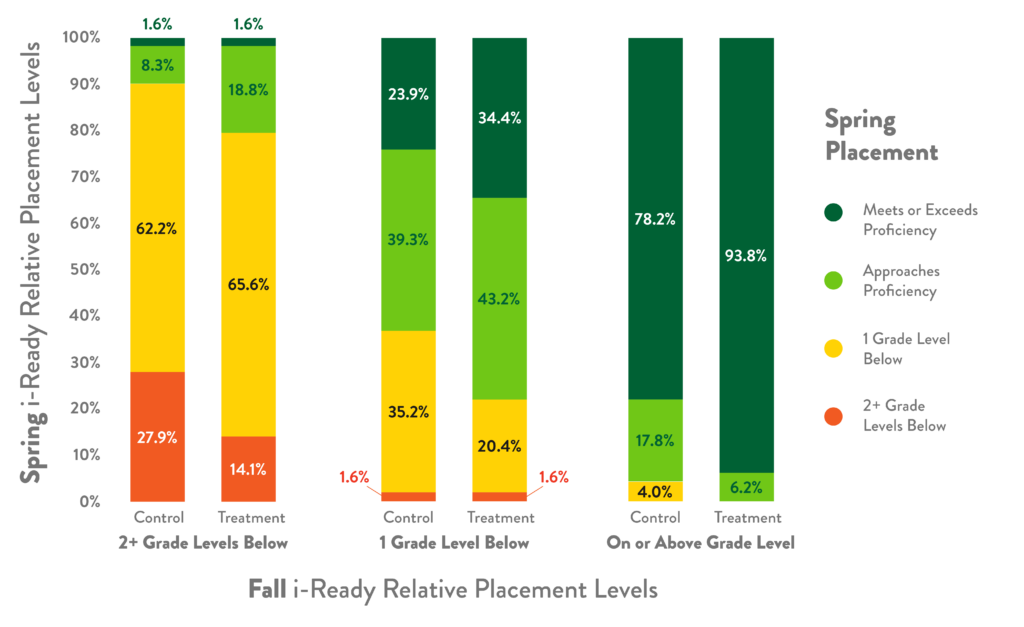By Dr Megan Conrad
Educational technology has the power to transform learning in international schools. Technology can help teachers and administrators create an inclusive, flexible and adaptive learning environment that helps to prepare students for the challenges and opportunities of the 21st century. However, with a large landscape of products to choose from, selecting the right edtech can be challenging. Well-designed research can help educators differentiate which technologies will work best for which students and in what contexts. However, a recent LearnPlatform report found that only 26% of the top 100 most used edtech products meet high-quality research standards, making the process of finding the right technology seem daunting.
How can international schools choose effective edtech products that work for their students?
Educators should start by choosing products that are grounded in best practices for instructional design. Educational technology can play an important role in implementing instructional techniques known to support efficient and effective learning, like 1:1 tutoring, by making them practical and affordable, provided that the software is well-designed. ExploreLearning products use research-validated instructional techniques to create a powerful way for all students to learn. All of our products are built on a foundational base of empirical and theoretical research deeply rooted in the learning sciences. Gizmos are designed using an inquiry-based approach to learning that has been validated by extensive research as a highly effective way to build conceptual understanding for all levels of learners. Similarly, Reflex and Frax use research-proven methods and innovative, adaptive technology to provide an effective and efficient solution that is tailored to each learner’s individual needs. Gizmos are interactive online simulations and case studies designed for hands-on learning and experimentation. Similarly, Reflex (maths fact fluency development) and Frax (fractions mastery development) use interactive, individualised instruction to build foundational maths skills and self-confidence to take on more complex topics.
“Educators should also seek products that produce measurable, positive outcomes for all students.”
A K-12 science coordinator in UAE said: “Science lessons can be anything but ordinary when accompanied by engaging activities of computer simulations. That was the power of ExploreLearning’s visual model, Gizmos. It is an interactive user model that allows our teachers and students to swiftly move through a variety of scientific concepts or scenarios in a single session, significantly broadening the range of what can be demonstrated, explained, and explored in the classroom. Additionally, it offers a safe and engaging learning environment to all our students and allows them to build their experience and enthusiasm for STEM subjects without geographical limitations. Finally, Gizmos’ interactive features increase students’ interest and involvement in inquiry-based lessons, which has had a favourable impact on their academic growth and performance.”
For international educators, edtech solutions also need to be relevant to students and teachers across the globe. A major challenge for K-12 international schools is meeting the needs of diverse learners while integrating edtech tools with traditional teaching methods. Our adaptive learning platforms, Frax and Reflex, utilise powerful algorithms to assess individual student progress and tailor content accordingly, providing a personalised learning experience that can foster growth at an appropriate pace. Gizmos and Science4Us (inquiry-based science activities for early learners) provide STEM learning opportunities with flexible delivery methods, supporting a variety of teaching methods and allowing teachers to adapt materials to different pedagogical approaches. Supporting a blended learning approach, combining face-to-face instruction with online resources, can enhance student engagement and achievement.
A high school teacher in Ontario, Canada, said: “These virtual tools offer very rich, engaging, and high-quality case studies for high school science that closely align with curriculum expectations. I have found them to be an incredibly valuable resource. Student engagement and feedback have always been positive, and despite a concerted effort to find alternatives, I have not been able to find any digital resources that can compare to the educational quality of Gizmos, especially the health-focused case studies.”
In addition to being built on a solid foundation, educators should also seek products that produce measurable, positive outcomes for all students. ExploreLearning products are not just research-backed, but evidence-based; they meet rigorous standards through extensive research-based evidence that supports the standard of excellence educators expect and deserve. Educators receive the data needed to support student learning every day through data dashboards with real-time progress monitoring. A number of studies on our Frax and Reflex products, for instance, have demonstrated significant and positive increases in student maths knowledge and academic performance that are directly correlated to student usage of our programmes, including recent third-party validated work aligned to high-quality research standards. Qualitative and survey data from teachers has also validated these findings, with teachers consistently observing improvements in student performance, even for those students at risk of academic failure.

Lance De Coteau, physics lab technician at the University of the Southern Caribbean Science Technology and Allied Health in Trinidad and Tobago, noted: “I really admire the content of the Gizmos resource. At this university, the wide range of topics desired and the virtual labs to facilitate the understanding of the concept were greatly appreciated by facilitators and students. What surprised us most was the short time your company took to expand your resource base through the addition of Reflex, Frax, and Science4Us as new interactive learning platforms.”
Proven edtech resources from ExploreLearning can increase engagement and create opportunities for international students to explore and expand their conceptual understanding of STEM topics. With ongoing research, products continue to be expanded and improved for optimal user experience for students and teachers. ExploreLearning continually engages in analyses of student performance data for product improvement and collects teacher feedback through our innovative co-design Collab Crew programme. To date, our products have over 40 research articles conducted by third-party academic researchers from across the world, with many being published in peer-reviewed journals. With a commitment to creating engagement through the application of the latest in learning sciences and continual improvement via rigorous empirical research, our products can empower teachers in international schools in 80 countries to provide a globally competitive education while meeting the diverse learning needs of their students.

Dr Megan Conrad is the Senior Researcher for ExploreLearning, conducting efficacy research across all four of ExploreLearning’s award-winning K-12 STEM digital programmes. Dr Conrad earned her PhD in child development from Rutgers University and has over 10 years of experience conducting research in children’s learning. She is passionate about using research to support all children’s access to high-quality, evidenced-based educational programmes.
This is an advertorial from ExploreLearning.

